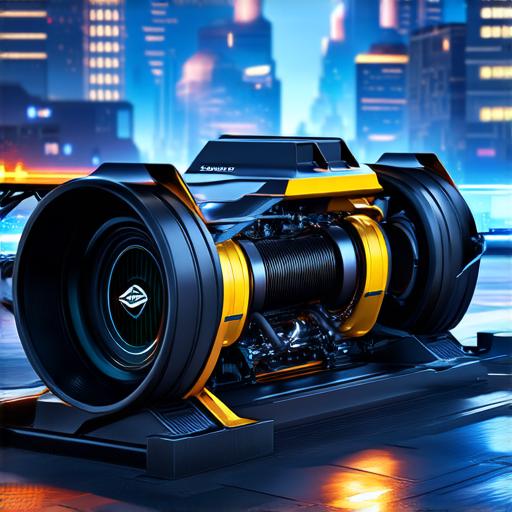When it comes to game development, two of the most popular engines are
Unreal Engine
and
Unity
. Both have their own unique features and capabilities that make them suitable for different types of projects. However, there is a common misconception that one engine is inherently better than the other. In this article, we will explore the strengths and weaknesses of both engines and determine which one is superior based on your specific needs and goals.
Unreal Engine
Unreal Engine
is a powerful game development engine created by Epic Games. It was first released in 1998 and has since become a staple in the industry.
Unreal Engine
is known for its high-performance graphics, advanced physics simulation, and support for virtual reality (VR) and augmented reality (AR) development.
One of the key strengths of
Unreal Engine
is its visual scripting system, which allows developers to create complex visual effects without the need for any coding. This makes it easier for artists and designers to work alongside programmers and quickly prototype new ideas.
Unreal Engine
also has a large community of developers, which means there are plenty of resources available online for learning and troubleshooting. Additionally,
Unreal Engine
has support for multiple programming languages, including C++, Blueprints, and Python, which allows developers to choose the best tool for their specific needs.
However,
Unreal Engine
also has its weaknesses. It can be more difficult to learn than other engines, and it requires a higher level of technical expertise. Additionally,
Unreal Engine
can be resource-intensive, which means it may not be suitable for smaller projects or systems with lower hardware specifications.
Unity
Unity
is another popular game development engine that was first released in 2008. It is created by
Unity
Technologies and has since become one of the most widely used engines in the industry.
Unity
is known for its simplicity, ease of use, and support for both 2D and 3D game development.
One of the key strengths of
Unity
is its drag-and-drop visual scripting system, which allows developers to create complex visual effects without the need for any coding. This makes it easier for artists and designers to work alongside programmers and quickly prototype new ideas.
Unity
also has a large community of developers, which means there are plenty of resources available online for learning and troubleshooting. Additionally,
Unity
has support for multiple programming languages, including C and JavaScript, which allows developers to choose the best tool for their specific needs.
However,
Unity
also has its weaknesses. It may not be as powerful as other engines when it comes to graphics and physics simulation, and it may not be suitable for very large or complex projects. Additionally,
Unity
can be more difficult to optimize for performance than other engines.
Summary
In conclusion, both
Unreal Engine
and
Unity
have their own unique strengths and weaknesses. The choice between the two ultimately depends on your specific needs and goals. If you are working on a large or complex project that requires advanced graphics and physics simulation, then
Unreal Engine
may be the better choice for you. However, if you are looking for an easy-to-use engine with strong support for both 2D and 3D game development, then
Unity
may be the better choice for you. Ultimately, the most important thing is to choose the engine that best fits your needs and skill level.

